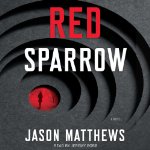
 The Ocean at the End of the Lane
The Ocean at the End of the Lane
By Neil Gaiman; Read by Neil Gaiman
Audible Download – 5 Hours 48 Minutes [UNABRIDGED]
Publisher: Harper Audio
Published: 2013
Themes: / Supernatural / Metaphysics / Parallel Universe/ Young Adult
When I learned a year or so ago of Neil Gaiman’s first novel for adults since 2005’s Anansi Boys, I was thrilled. Sure, that last novel didn’t do much for me, nor did most of his subsequent writing for children, but I’m a lifetime Gaimanophile–I’ll read pretty much anything the British expatriate puts out. This is because he established such a solid early track record for me with Neverwhere, Stardust, and especially American Gods.
Enter The Ocean at the End of the Lane, a whimsically evocative title that itself encapsulates much of what I love about Gaiman. The tale is told from the perspective of an unnamed narrator, looking back on a defining period in his childhood. The young boy, whose name we never learn, witnesses a suicide that unleashes some strange, powerful cosmic forces in rural Sussex, where the novel takes place. The child is aided in the conflict by the enigmatic and archetypal Hempstock family. Bizarre events ensue.
As with any Neil Gaiman work, the writing is top-notch. Description, dialog, and action all shimmer off the page. When shit gets weird, pardon my French, the events are still grounded in vivid, expressive language that makes it feel as though we might encounter them in our own backyards. The characters, particularly the Hempstock trio, also deserve high praise. To me they evoke the best traits of Mrs. Who, Mrs. Whatsit, and Mrs. Which from Madeleine L’Engle’s A Wrinkle in Time. In the descrepancy of their age (at least their apparent age), they also allude to the Fates of Greek mythology or the Norns of the Old Norse cosmos.
If I had never read a Gaiman novel before, I may have written an unbridled encomium for The Ocean at the End of the Lane, as indeed most high-profile book critics and publishing reviews seem to have done. The problem is that I’ve read this Neil Gaiman book before. I’ve read parts of it in Stardust and found splinters of it in his short stories. And from plot to tone to motifs, many elements of the novel have appeared in Gaiman’s fiction for children and young adults.
This perhaps is my biggest qualm with the book. When the book was announced and I read the phrase “first novel for adults,” visions of the deep, nuanced character development of American Gods, or at least the slightly grimier, lived-in setting of Neverwhere, danced through my head. With the exception of a suicide early on, though, I challenge you to find much in Ocean that couldn’t be digested by high school readers. To be fair, marketing may be more at fault than Gaiman himself, but the result is the same. I came away from the book feeling as though I had been duped.
The plot also feels rather thin, “like butter scraped over too mcuh bread” as Bilbo famously said. The story begins with promise: cosmic powers in conflict with nothing less than reality at stake. But the stakes are never really raised, at least not for the world at large. Sure, the main characters undergo their own crises and transformations requisite in good literature, but the scope of the threat is never fully illustrated. Part of my objections to the novel’s plotting may come down to personal taste, but at least some of them, I think, are justified.
In a Tor.com article, Leah Schnelbach recounts that, at an event, Gaiman explained that the story was originall intended as a novella.
I told my publishers there was a novella on the way, but then I did a word count at the end, and realized I just wrote a novel by accident! […] It wasn’t plotted. Things kept taking me by surprise. It’s not making things up, it’s getting into what did actually happen.
Gaiman’s approach to the creative process is beautiful, but in the case of Ocean, it just doesn’t work. I might have enjoyed this story in a Gaiman collection, but by the end of a full-length novel edition I confess I was weary.
In the usual “crap sandwich” style of my reviews, I will conclude with more praise. I “read” this book in audio form, narrated by Gaiman himself. Most authors lack the voice acting chops to narrate their own work, though many still try, but Gaiman’s mellifluous rhythms and upturned sentence endings fit the charming, surreal tone of this novel particularly well. With the possible exception of Stardust, the audio edition of The Ocean at the End of the Lane is perhaps the finest specimen of the author’s narration you’ll find. Oh, except for his reading of his poem “Instructions”.
My dissatisfaction with The Ocean at the End of the Lane has not caused me to lose faith in Neil Gaiman’s work. I simply hope that, as he did in his early career, he finds ways to reinvent himself and push the boundaries of his nearly boundless imagination.
Posted by Seth Wilson


 A Maze of Death
A Maze of Death Red Sparrow
Red Sparrow The Age Atomic (Empire State #2)
The Age Atomic (Empire State #2) Crown of Slaves (Honorverse: Wages of Sin #1)
Crown of Slaves (Honorverse: Wages of Sin #1)